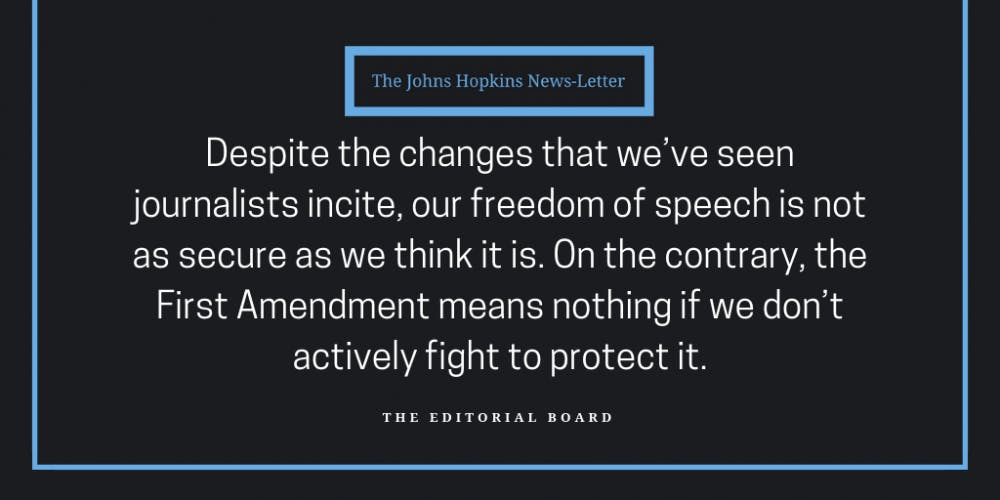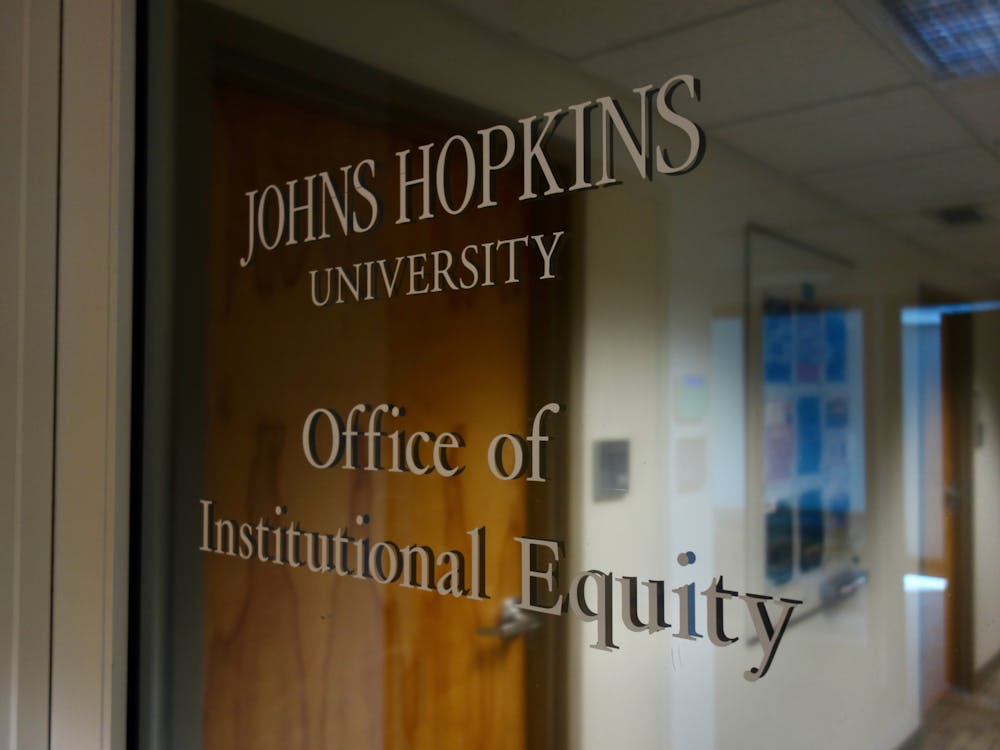In their efforts to inform the public, journalists often put their lives on the line and this past year has been particularly dangerous. A few weeks ago, Saudi Arabian journalist Jamal Khashoggi was tortured, dismembered and killed inside the Saudi consulate in Istanbul after advocating for free expression in the Arab world in The Washington Post. U.S. President Donald Trump has meanwhile been reluctant to hold the Saudi government accountable in Khashoggi’s death.
As of Oct. 11, at least 43 journalists around the world have been killed because of their jobs this year. Just days after Khashoggi’s death, Bulgarian current affairs talk show host Viktoria Marinova was raped and murdered. In February, Slovakian journalist Jon Cusiak and his fiancee were murdered. Closer to home, a man killed five people in the Annapolis newsroom of The Capital Gazette in June. And Trump continues to intimidate reporters and discredit the media as “fake news” and “the enemy of the people.”
As student journalists, we stands in solidarity with these victims. Free speech is crucial for attaining knowledge, fostering open discussion and publishing the truth. Every time an individual threatens, harasses or kills a journalist, it is a direct threat to our right to free speech. And we can’t take that right for granted. While our own Constitution guarantees freedom of speech and press under the First Amendment, many countries do not have this essential right codified in law. With Trump continuing to vilify the press, a U.S. in which the government threatens journalists into silence is not difficult to imagine.
But people today tend to undervalue journalism. The sacrifices and risks that journalists make to inform the public is disproportionate to the modest compensation they receive. The median starting salary for a reporter is $34,150, and even those jobs are difficult to find. From 2008 to 2017, newsroom employment – which includes jobs in print, radio and television – fell by 23 percent, according to the Pew Research Center. Newsroom employment for newspapers alone declined by 45 percent.
These employment trends translate into limited opportunities for student journalists. For example, many journalism internships are unpaid. This means that wealthy students can afford to pursue journalism careers, while their peers from lower-income backgrounds may not. This perpetuates an elite industry that lacks the voices of those who cannot afford to work for free.
It’s worth considering whether universities like Hopkins could give students more opportunities and incentives to enter journalism. Financial support is crucial. We have the Louis Azrael Scholarship for aspiring student journalists, but the University should consider more ways to financially support students with internships in journalism. Introducing more classes on journalism or even nonfiction writing would benefit students hoping to enter the industry.
Whether journalists are writing for their schools, their cities, their nations or the world, their work matters. Time after time, we’ve seen journalism act as a powerful arbiter for change and social justice. We’ve seen reporters at The New York Times and The New Yorker expose Harvey Weinstein’s crimes, galvanizing the #MeToo movement. Over a decade ago, The Boston Globe and numerous other publications exposed hundreds of Catholic priests who sexually abused children. The Washington Post helped bring down the Nixon administration by uncovering the Watergate scandal. And over a century ago, Ida B. Wells used her investigative journalism to expose the horrific lynchings occurring across the country.
We believe that even at The News-Letter, we’re sparking modest but important changes in our community. After we questioned the Student Government Association’s ability to influence University decisions, it introduced its first fall referendum, directly referencing our editorial as inspiration. We published a feature last semester on the Office of Institutional Equity (OIE) and its shortcomings in handling cases of sexual assault and harassment, and earlier this month OIE released a detailed report in an effort to increase transparency.
Over the past years we’ve tried to serve as a platform for a diverse range of students to share their stories. We aim to keep members of the Hopkins and Baltimore community informed about current events and will continue to work to keep the University accountable for its policies and actions.
Despite the changes that we’ve seen journalists incite, our freedom of speech is not as secure as we think it is. On the contrary, the First Amendment means nothing if we don’t actively fight to protect it. That means supporting journalists: by subscribing to your local paper, financially supporting low-income students who want to enter the industry and demanding justice for Khashoggi’s murder. In light of the past year, it’s more important than ever that we fight. Our lives and our democracy depend on it.





